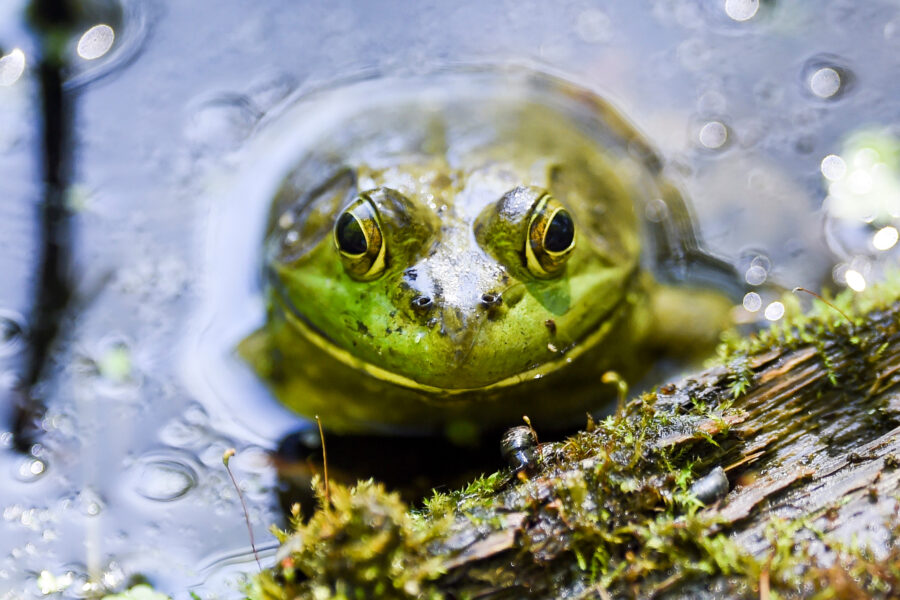The U.S. government has signaled a new determination to assert its role in Arctic oil and gas exploration by sending secretary of state Hillary Clinton and other ministers to a summit of the region’s powers for the first time.
Clinton and the U.S. secretary of the interior, Ken Salazar, were both at the biennial meeting in the Greenland capital of Nuuk amid fears by environmentalists of a “carve up” of Arctic resources that could savage a pristine environment.
The political maneuvers came as Britain’s Cairn Energy prepares to drill for oil off Greenland while Shell applies to explore for oil off Alaska and BP has done a deal to explore the Russian Arctic. They also came as cables were released by WikiLeaks showing American diplomats talking about the need to assert U.S. influence over political and economic competitors such as China.
The WikiLeaks site published a dispatch from 2007 — numbered 12958 — detailing a conversation between U.S. diplomats and the then Danish foreign minister, Per Stig Møller, in which they discuss delays in U.S. ratification of a key maritime convention. “If you stay out,” Møller is quoted as telling the Americans, “then the rest of us will have more to carve up in the Arctic.”
Another cable details the lengths to which the U.S. has been going to influence Greenland. “Our intensified outreach to the Greenlanders will encourage them to resist any false choice between the United States and Europe. It will also strengthen our relationship with Greenland vis-a-vis the Chinese, who have shown increasing interest in Greenland’s natural resource,” a U.S. diplomat is said to have written.
Excitement about the commercial potential of the Arctic has escalated as ice has retreated, making access to oil, gold and uranium easier at a time when commodity prices have rocketed. The U.S. Geological Survey reported in 2008 that up to a quarter of the world’s remaining reserves may lie under a melting ice cap.
Renewed interest by oil and mining companies has been accompanied by growing political and military activity but all the big states in the area, such as the U.S. and Russia, have played down in public any speculation about a new cold war.
Greenpeace oil campaigner Ben Ayliffe said the latest revelations were extremely disturbing. “Instead of seeing the melting of the Arctic ice cap as a spur to action on climate change, the leaders of the Arctic nations are instead investing in military hardware to fight for the oil beneath it. They’re preparing to fight to extract the very fossil fuels that caused the melting in the first place. It’s like pouring gasoline on a fire.”
The WikiLeaks cables show how the scramble for resources in the Arctic is heightening military tension in the region, with NATO sources worried about the potential for armed conflict with Russia.
There is also concern that Russia may be maneuvering to claim ownership over huge areas of the Arctic, with one senior Moscow source alleging that a Russian explorer’s submarine expedition to plant a flag on the seabed beneath the North Pole was ordered by Vladimir Putin’s United Russia party.
Canadian leaders have privately expressed disquiet over NATO’s mooted plans to use military force in the Arctic in the face of perceived Russian aggression.
The recently re-elected Canadian prime minister, Stephen Harper, is quoted by diplomats as saying that a NATO presence in the region would give non-Arctic members of the alliance too much influence in an area where “they don’t belong”.
The race for new resources has also worried indigenous people. Jimmy Stotts, president of the Inuit Circumpolar Council in Alaska, said he was not opposed to oil exploration as long as it was done safely. “We’re not convinced, at least in Alaska, that it’s sustainable so far, despite statements that are made by government or industry or others,” Stotts said. “We’re still waiting for somebody to prove to us that they can clean up an oil spill in the Arctic Ocean.”
About This Story
Perhaps you noticed: This story, like all the news we publish, is free to read. That’s because Inside Climate News is a 501c3 nonprofit organization. We do not charge a subscription fee, lock our news behind a paywall, or clutter our website with ads. We make our news on climate and the environment freely available to you and anyone who wants it.
That’s not all. We also share our news for free with scores of other media organizations around the country. Many of them can’t afford to do environmental journalism of their own. We’ve built bureaus from coast to coast to report local stories, collaborate with local newsrooms and co-publish articles so that this vital work is shared as widely as possible.
Two of us launched ICN in 2007. Six years later we earned a Pulitzer Prize for National Reporting, and now we run the oldest and largest dedicated climate newsroom in the nation. We tell the story in all its complexity. We hold polluters accountable. We expose environmental injustice. We debunk misinformation. We scrutinize solutions and inspire action.
Donations from readers like you fund every aspect of what we do. If you don’t already, will you support our ongoing work, our reporting on the biggest crisis facing our planet, and help us reach even more readers in more places?
Please take a moment to make a tax-deductible donation. Every one of them makes a difference.
Thank you,











